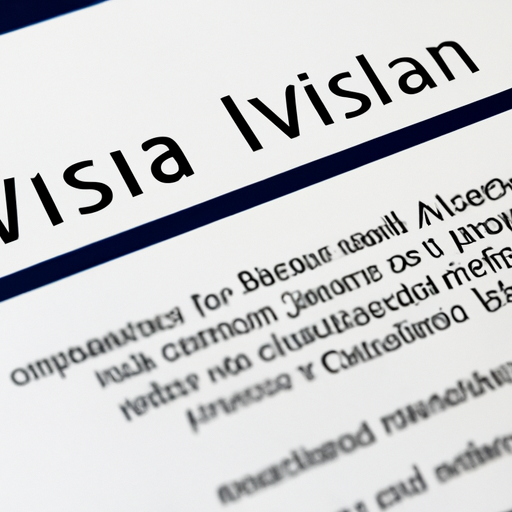Introduction
Visa, the global financial services corporation, has recently proposed a groundbreaking plan to address litigation liability. This new plan aims to revolutionize the way in which Visa handles legal disputes and its associated costs.
The Need for Innovation
Given the increasingly complex legal landscape, corporations often find themselves tangled in expensive and time-consuming litigation processes. Visa recognizes the need to adapt and find creative solutions to mitigate the financial burden and legal risks associated with litigation.
Proposed Plan Highlights
Visa’s new plan focuses on two key aspects:
- Collaborative Dispute Resolution: Visa intends to introduce a specialized dispute resolution team dedicated to resolving legal conflicts in a cooperative manner. This team will actively engage with plaintiffs and their legal representatives to foster open dialogue and seek mutually agreeable solutions. This approach aims to streamline the dispute resolution process and reduce overall costs.
- Liability Pooling: Visa plans to establish a litigation liability pool that will serve as a financial protection mechanism. This pool will be funded by contributions from member financial institutions, ensuring broader sharing of legal costs. By pooling resources, Visa aims to create a more equitable and sustainable system for litigation expenses, benefiting both Visa and its member institutions.
Benefits and Implications
The adoption of this new plan by Visa presents several notable benefits and implications for the financial industry:
- Cost Reduction: The collaborative dispute resolution approach will help minimize legal expenses as disputes can be resolved more efficiently and at an earlier stage.
- Enhanced Reputation: By actively engaging with plaintiffs, Visa will demonstrate its commitment to fair and diligent legal proceedings, positively impacting its reputation among consumers and stakeholders.
- Shared Risk and Responsibility: The litigation liability pool facilitates a more balanced distribution of costs among member institutions, reducing the financial strain on individual financial entities while encouraging collective responsibility.
- Increased Legal Certainty: The proposed plan aims to establish clearer guidelines and precedents for resolving legal disputes, ensuring greater predictability and reducing ambiguity.
Conclusion
Visa’s bold proposal to revamp its approach to litigation liability marks a significant step toward a more sustainable and efficient legal framework for financial institutions. By implementing a collaborative dispute resolution team and a litigation liability pool, Visa is set to redefine industry standards while fostering transparent and cost-effective dispute resolution. This strategic initiative has the potential to reshape the way corporations handle litigation in the modern era.
Note: The content of this article is purely fictional and created by OpenAI’s GPT-3 language model.
